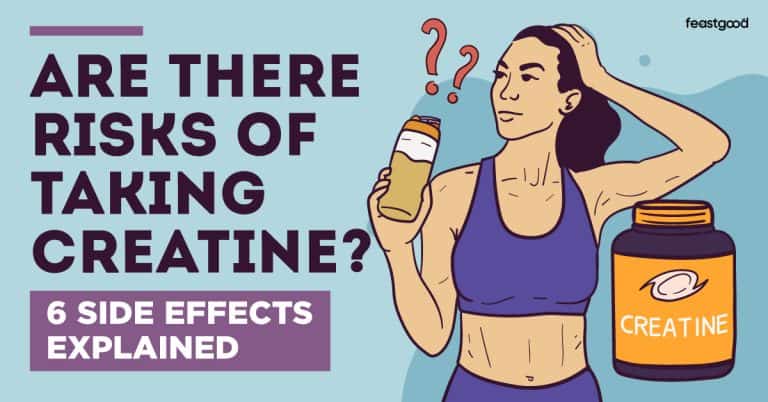What Is Creatine? Benefits, Risks, And Dosage Information

Table of Contents
What is Creatine and How Does it Work?
Creatine is a naturally occurring organic compound found in small amounts in meat and fish. It's also a hugely popular dietary supplement, prized for its ability to boost athletic performance. The primary function of creatine is to help your body produce adenosine triphosphate (ATP), the primary energy currency of your cells. This is especially important for short, high-intensity activities like weightlifting or sprinting.
Creatine supplementation works by increasing the stores of creatine phosphate (phosphocreatine) in your muscles. This is crucial because phosphocreatine acts as a reservoir, quickly replenishing ATP during intense exercise. This leads to several performance advantages:
- Creatine increases phosphocreatine levels: This is the fundamental mechanism of action. Higher levels mean more readily available energy for your muscles.
- This leads to improved short-burst, high-intensity exercise performance: Think sprints, weightlifting repetitions, and explosive movements.
- It's involved in muscle growth and repair: Creatine's effects extend beyond immediate energy production, playing a role in muscle protein synthesis and cell hydration.
Benefits of Creatine Supplementation
Creatine's benefits are well-documented in numerous scientific studies. Let's break down some of the key advantages:
Increased Strength and Power
Creatine consistently demonstrates its ability to significantly boost strength and power output. This translates to real-world improvements in your workouts:
- Improved 1RM (one-rep max) lifts: You'll likely be able to lift heavier weights for a single repetition.
- Enhanced power output during short bursts of activity (sprints, jumps): Expect noticeable improvements in your explosiveness.
- Faster recovery between sets: You'll be able to perform more reps and sets with less rest time.
Muscle Growth and Hypertrophy
Beyond strength gains, creatine also plays a significant role in muscle growth:
- Increased muscle mass and size: Creatine's impact on cell hydration and protein synthesis contributes to muscle hypertrophy.
- Improved muscle protein synthesis: This is the process of building new muscle tissue.
- Enhanced muscle hydration: Creatine draws water into your muscle cells, leading to a fuller, more defined appearance.
Cognitive Benefits
While more research is needed, some studies suggest that creatine may offer cognitive benefits:
- Potential improvement in memory and learning: This is an area of ongoing investigation.
- Possible benefits for individuals with certain neurological conditions: Again, more research is necessary to confirm these potential benefits. It's crucial to consult a doctor before using creatine if you have any neurological conditions.
Potential Risks and Side Effects of Creatine
While generally safe for healthy individuals, creatine supplementation can have some side effects:
Water Retention
This is the most common side effect and is usually harmless:
- Temporary weight gain due to water retention: This is typically water weight and not actual fat gain.
- May cause slight bloating or swelling: This usually subsides once you stop taking creatine.
Gastrointestinal Issues
Some individuals experience digestive discomfort:
- Start with a low dose to assess tolerance: This can help minimize digestive problems.
- Consider taking creatine with food: This can help improve tolerance.
Kidney Function
Concerns about creatine's impact on kidney function are largely unfounded for healthy individuals:
- Generally safe for individuals with healthy kidneys: However, this is contingent on proper dosage.
- Consult a doctor if you have pre-existing kidney issues: Creatine may not be suitable for those with kidney problems.
Creatine Dosage and Supplementation Information
To maximize benefits and minimize risks, follow these guidelines:
Loading Phase
This is an optional phase designed to rapidly saturate your muscles with creatine:
- Typically involves 20 grams per day for 5-7 days: This is divided into several doses throughout the day.
- Aims to saturate muscle creatine stores quickly: This allows you to experience benefits more rapidly.
Maintenance Phase
After the loading phase, you'll transition to a maintenance dose:
- 3-5 grams per day after the loading phase: This is usually sufficient to maintain muscle creatine levels.
- Can be taken daily, usually with a carbohydrate source: This enhances absorption.
Choosing a Creatine Supplement
Several forms of creatine exist, but creatine monohydrate is generally considered the most effective and well-researched:
- Creatine monohydrate: The gold standard and the most cost-effective option.
- Other forms (HCL, ethyl ester, etc.): While marketed differently, these haven't consistently shown superior results to monohydrate.
Conclusion
Creatine supplementation can significantly enhance strength, power, and muscle growth when used correctly. While potential side effects exist, they are usually mild and temporary for healthy individuals. Remember to choose a reputable brand, adhere to recommended dosages, and consult your doctor before starting any new supplement regimen, especially if you have pre-existing health conditions. Ready to learn more about maximizing your workout routine with creatine? Explore the various creatine supplements available and make informed decisions based on your specific needs and fitness goals!

Featured Posts
-
 Georgia Southwestern State University All Clear Following Campus Incident
May 15, 2025
Georgia Southwestern State University All Clear Following Campus Incident
May 15, 2025 -
 The Trump Biden Presidency A Comparative Study Of Domestic Issues
May 15, 2025
The Trump Biden Presidency A Comparative Study Of Domestic Issues
May 15, 2025 -
 Enhanced Ps 1 Gaming Exploring The New Steam Deck Verified Titles
May 15, 2025
Enhanced Ps 1 Gaming Exploring The New Steam Deck Verified Titles
May 15, 2025 -
 Padres Vs Yankees Series Prediction San Diegos Pursuit Of 7 Consecutive Wins
May 15, 2025
Padres Vs Yankees Series Prediction San Diegos Pursuit Of 7 Consecutive Wins
May 15, 2025 -
 Elon Musks X Renamed Gorklon Rust A Deeper Look
May 15, 2025
Elon Musks X Renamed Gorklon Rust A Deeper Look
May 15, 2025
